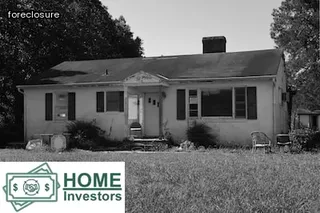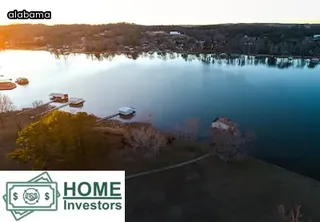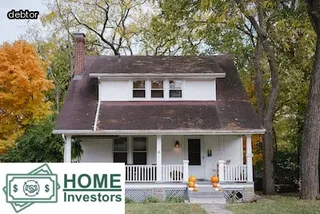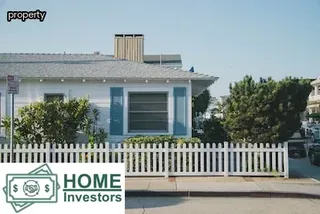Foreclosures in Alabama are handled differently than in other states. Alabama is one of the few states that utilizes a judicial foreclosure process, meaning that lenders must seek court action to take possession of a property.
Foreclosure proceedings in Alabama typically start with the lender filing a complaint with the court. From there, homeowners are served with notice of the foreclosure and an opportunity to respond.
If homeowners do not respond, or if they cannot successfully defend their right to keep the property, then lenders can proceed with obtaining a judgment for repossession. The timeline for this process varies depending on the county and individual circumstances, but it typically takes several months from start to finish.
Once a judgment is entered against a homeowner, their only remaining option is to pursue other methods of dealing with their outstanding mortgage debt such as loan modification or short sale. Understanding these rights and options is essential for any homeowner facing foreclosure in Alabama.

When a homeowner falls behind on their mortgage payments in Alabama, they enter the preforeclosure process. This is the first step in the foreclosure process and involves the lender sending delinquent homeowners a notice of default that includes information about the amount owed and how to cure the default.
Once this notice is sent, homeowners have a period of time to remedy the situation before their home is put up for sale. During this time, homeowners can either pay off their loan balance in full or reach out to their lender to explore foreclosure alternatives such as loan modifications, short sales, deed-in-lieu of foreclosure, or repayment plans.
It's important to note that homeowners must contact their lender during this time as lenders are not required by law to provide assistance with foreclosure alternatives. If homeowners fail to take action within the allotted timeframe, they will be served with a Notice of Sale which signals that the property will soon be sold at auction unless another arrangement is made with the lender.
It's critical for Alabama homeowners facing preforeclosure to understand all of their rights and options and take necessary steps quickly before it's too late.
The foreclosure process in Alabama is regulated by both state and federal law. These laws dictate how lenders can pursue foreclosure against homeowners who are behind on their mortgage payments.
The first step of the process is for a lender to send a Notice of Default to the homeowner, which serves as an official warning that they have defaulted on their loan and must take action to avoid foreclosure. Once this notice is issued, the homeowner has 30 days to cure the delinquency or face foreclosure proceedings.
If the borrower is unable to meet their obligations within this timeframe, then the lender may file suit in court and request a judgment authorizing them to proceed with a foreclosure sale. In addition to these state laws, federally-backed mortgages also fall under additional protections such as right-to-cure notices and pre-foreclosure counseling services.
Homeowners should be aware of these options when facing foreclosure so they can make informed decisions about their rights and responsibilities under both state and federal law.

Navigating the Alabama foreclosure process can be a confusing and intimidating experience. Fortunately, there are certain rights that borrowers have before the foreclosure sale takes place.
One of these is the right to reinstate the loan and avoid a foreclosure sale altogether. A borrower has this right until 5 p.
on the day before the sale. To do this, they must pay all past due payments, late fees, attorney's fees, costs associated with preserving and marketing the property, and any taxes due on the property.
The amount necessary for reinstatement will be provided by either the lender or their attorney in written form prior to the sale date. Borrowers should also be aware that if they believe they have been treated unfairly or are facing an inaccurate foreclosure, then they can file a complaint with Alabama's Department of Banking and obtain legal assistance from an experienced foreclosure attorney who can help them understand their rights and options throughout the process.
In Alabama, the foreclosure process can be a difficult and confusing experience. Fortunately, there is an option for those who have had their property foreclosed to redeem it after the sale has taken place.
This redemption process allows borrowers to repurchase their property from the buyer within a certain period of time, and can provide them with a chance to keep their home. In order to redeem their home in Alabama, borrowers must pay off all past due payments as well as interest and any legal fees that are associated with the foreclosure.
It is important to note that the redemption period in Alabama is limited, so borrowers need to act quickly if they wish to reclaim their property. Additionally, it is essential for borrowers to understand all of their rights and options when navigating through the foreclosure process in order to ensure that they make an informed decision about whether or not they choose redemption.

When a foreclosure takes place in Alabama, the lender may be able to seek a deficiency judgment against the borrower. This type of judgment allows them to recover any money that is left unpaid after the home's sale price does not cover the entire loan balance.
These judgments are used when the lender believes there is an amount due from the borrower and are granted by Alabama courts. Depending on how much money is owed, lenders may choose to pursue a deficiency judgment in order to secure repayment.
The amount owed must be established through court proceedings and will depend on the state laws and regulations. In most cases, if a deficiency judgment is granted, it must be paid within 30 days of being issued.
If the debtor fails to pay within this period, they could face wage garnishment or bank account seizure as methods of repayment. It is important for borrowers to understand their rights when facing foreclosure in Alabama and have knowledge of what happens if a deficiency judgment is granted against them so they can make informed decisions about their financial future.
Bankruptcy can be an effective tool to help those struggling with foreclosure in Alabama. Filing for bankruptcy may be able to stop the foreclosure process and provide much needed relief to homeowners.
Bankruptcy can also help reduce the amount of debt owed on a home, allowing homeowners to keep their homes and stay current on their mortgage payments. In addition, filing for bankruptcy can give homeowners more time to catch up on past due payments and avoid any further foreclosure proceedings.
Furthermore, filing for bankruptcy will also discharge certain debts that are associated with the home, such as mortgage-related fees or outstanding taxes. These discharged debts can free up more funds for homeowners to use towards their mortgage payments or other expenses associated with the home.
While there are many potential benefits of filing for bankruptcy when facing foreclosure, it is important for homeowners in Alabama to understand their rights and options before making any decisions about how best to handle a foreclosure situation.

When facing a home foreclosure in Alabama, there are several options to consider. Firstly, homeowners may be eligible for government assistance such as the Making Home Affordable Program or other programs offered by the Department of Housing and Urban Development.
Additionally, borrowers may be able to refinance their mortgage through a lender or bank; this could potentially lower monthly payments and help prevent foreclosure. Other potential solutions include forbearance and loan modifications which can extend repayment periods or temporarily reduce payments.
Borrowers should also explore whether they can negotiate with their lender and work out a repayment plan that fits their budget. Lastly, if all else fails, bankruptcy may provide some relief from the looming threat of foreclosure.
Overall, homeowners should become familiar with all the available options so they can make an informed decision regarding their best course of action when facing a home foreclosure in Alabama.
Navigating the Alabama Foreclosure Process can be a daunting task for homeowners. Many people don't know their rights and options, which is why it's important to get professional assistance from qualified experts.
Working with an experienced lawyer or housing counselor can help you understand your legal rights and explore potential foreclosure prevention options that may be available to you. A lawyer or housing counselor will also ensure that you are being treated fairly by lenders, loan servicers, and other parties involved in the foreclosure process.
Furthermore, they can provide guidance on how to handle bankruptcy proceedings, if necessary. It's important to remember that seeking professional assistance is often the best way to protect your rights and make sure you're taking the right steps when facing a possible foreclosure.

When faced with the possibility of foreclosure, it is important to understand your rights and options. Negotiating with mortgage lenders can be a difficult process, but it is possible to avoid foreclosure by understanding how to communicate with lenders and what their goals are.
Working out an agreement with the lender may involve restructuring debt or loan modification. If you decide to negotiate with your lender, it's important to remain patient and persistent while also being informed of your rights as a homeowner.
Be sure to document any communication you have with the lender as well as all decisions made throughout the negotiation process. Knowing what strategies can help you reach an agreement with your mortgage lender can help you navigate the Alabama foreclosure process and protect your home from foreclosure.
If you are facing foreclosure in Alabama, it is important to understand your rights and options for avoiding or delaying home loss. Generally, the most effective strategies for avoiding foreclosure involve working with your lender to come up with a payment solution that works for both parties.
You and your lender could agree on an extension of the loan, an adjustment of the payments, a forbearance agreement, or some other plan. Additionally, if you have sufficient equity in your home, you may be able to refinance the loan or obtain a second mortgage.
Furthermore, depending on the circumstances of your case, filing for bankruptcy can prevent foreclosure and provide additional financial relief. In all cases, it is advisable that you contact an attorney who specializes in foreclosure law to discuss your situation and determine the best course of action.

Before allowing a home to go into foreclosure in Alabama, it is important to consider all alternatives. Homeowners should look into loan modifications or refinancing, which allows them to adjust the loan's terms and conditions while keeping ownership of their home.
Families who have lost their income due to job loss or other financial hardship may be eligible for forbearance plans, which allow them to temporarily suspend mortgage payments until they are able to resume payment. Additionally, homeowners can negotiate with the lender for a short sale, where the lender agrees to accept a lower amount than what was originally owed on the mortgage.
Other options include a deed-in-lieu of foreclosure, where the homeowner voluntarily transfers ownership of the property back to the lender in exchange for debt forgiveness; and cash-for-keys agreement, in which the lender pays some money in exchange for keys and possession of the house. It is important that homeowners understand their rights and options before making any decisions about their real estate investments.
When you default on a home loan, it can be a difficult and confusing process. While the consequences of not taking action might seem minor at first, these risks can snowball quickly and become overwhelming if left unchecked.
In Alabama, homeowners facing foreclosure must understand their rights and options in order to protect their property and financial future. It is important to know that nonpayment of a mortgage will likely lead to legal action from the lender, resulting in the potential loss of your home through foreclosure.
If a homeowner does not take steps to resolve the issue with their lender or seek assistance from housing counselors or legal aid organizations, they could end up losing their home without ever having had a chance to make things right. Furthermore, it is important to remember that even after foreclosure has been completed, homeowners may still be responsible for any remaining debt owed on the property.
Therefore, it is essential for individuals facing foreclosure in Alabama to evaluate all potential solutions and make informed decisions about how best to move forward.

The financial impact of letting your home go into foreclosure can be devastating. It takes a toll not just on your credit score, but also on your finances in other ways.
Foreclosure can significantly reduce the amount of money you have in savings and leave you with debt that could take years to pay off. Additionally, foreclosure can lead to additional costs like attorney fees, court costs and other associated expenses.
In many cases, the total cost of a foreclosure could be more than double what it would cost to pursue alternative options such as a loan modification or short sale. Furthermore, all of these financial impacts can make it difficult for you to purchase another home in the future or even rent an apartment.
It is important that those facing foreclosure understand their rights and options so they can make an informed decision about what is best for them and their family financially.
It is important to understand the post-foreclosure laws and regulations in Alabama to navigate the foreclosure process as efficiently as possible. Depending on the type of loan you have, lenders may not be able to pursue a deficiency judgment after a foreclosure sale, meaning that you could potentially walk away from the foreclosure with no further consequences.
Additionally, certain types of loans are protected from post-foreclosure deficiency judgments by Alabama's Homestead Laws. Homeowners should also be aware that there may be additional fees and costs associated with the foreclosure process in Alabama such as court costs, attorney's fees and title search expenses.
Lastly, there are options available to help people stay in their homes or avoid foreclosure altogether such as loan modifications, short sales or deed in lieu of foreclosure. It is imperative to understand all of your rights and options before beginning the foreclosure process so that you can make informed decisions about how best to protect yourself financially.

Finding suitable housing after a home goes into foreclosure can be a daunting task. It is important to understand the rights and options available when navigating the Alabama foreclosure process, in order to make an educated decision that best suits your circumstances.
There are several steps you should consider when searching for new housing after a foreclosure. First, contact local real estate agents and ask about any properties currently on the market or upcoming auctions.
You may also want to research online listings or contact nonprofit organizations that offer assistance with finding affordable housing in your area. Additionally, you may qualify for public housing programs such as Section 8 or Federal Housing Administration (FHA) loans to help cover the cost of rent or a down payment on another property.
Finally, it is important to create a budget and stick to it, so you can make sure you’re not taking on more than you can afford as you search for new housing.
Once a home has been lost to foreclosure, it’s important to think carefully about how to avoid mortgage problems in the future. Building up a good credit score is essential in order to be able to qualify for a new loan and secure a new home.
To start rebuilding your credit, you should review your credit reports for any errors and dispute any that you find. It’s also important to make sure you pay bills on time and maintain low balances on all of your accounts.
Additionally, it’s best to keep other debts such as car loans or student loans at manageable levels so you can prove that you are responsible with debt repayment. Finally, if possible, try to save money in an emergency fund so that if unexpected expenses arise, you can handle them without taking out more debt or having issues with mortgage payments.
Navigating the Alabama foreclosure process is daunting, but armed with knowledge of your rights and options, you can work towards preventing further mortgage problems down the line.

It is important to understand the potential tax implications of losing a property through mortgage default in Alabama. If you are facing foreclosure, you may be subject to a range of taxes depending on how much money was lost and the type of loan involved.
Depending on the individual situation, homeowners may owe federal income taxes from forgiven debt, which occurs when the lender agrees to accept less than what is owed on the loan. Additionally, some states impose their own taxes for forgiven loans, so it is important to be aware of local regulations as well.
Furthermore, homeowners can also be subject to capital gains taxes if they sell their home for less than its original value or receive cash from a lender in exchange for deed-in-lieu transactions or short sales. It is important to consult with an accountant or tax expert before making any decisions regarding foreclosure in Alabama so that you can better prepare and understand any possible tax consequences.
Navigating the Alabama foreclosure process can be incredibly difficult and stressful, especially if you have already put in an effort to save your property. While it may feel like a daunting task to figure out what comes next, there are resources available to help you understand your rights and options.
Receiving guidance from experienced professionals can assist homeowners in determining the most effective steps moving forward after a failed attempt at saving their property. This may include researching state laws and regulations, connecting with local organizations that provide assistance, or exploring alternative solutions such as loan modifications or refinancing.
It is important to stay informed of all available resources in order to make an educated decision on how best to move forward and protect your financial interests.

When a homeowner in Alabama receives notification of an impending home loan default, it can be a frightening and stressful experience. To help navigate through this challenging situation, it is important to understand the process of foreclosure in Alabama and your rights as a homeowner.
Generally speaking, when a homeowner fails to make the agreed-upon payments on their mortgage loan, the lender may initiate foreclosure proceedings. This will involve sending notices to the borrower with information about the delinquency, including how much money is owed and what actions the borrower must take to avoid foreclosure.
It is important that these notices are taken seriously, as failure to comply with their requests could result in the home being foreclosed upon. As such, borrowers should immediately contact their lender or seek out legal advice to better understand their options and rights during this difficult time.
In Alabama, homeowners affected by foreclosure have a specific timeline for moving out of their property. After the court enters a final judgment in favor of the lender, the homeowner has 20 days to move out.
The homeowner must also give written notice to the lender or their attorney of their intention to vacate before this date. If the homeowner does not comply with these requirements, they may be subject to criminal proceedings and fines.
Additionally, after the 20 day period, the homeowner may be held responsible for any damages resulting from their continued occupancy or use of the property. It is important that homeowners understand and follow these timelines in order to protect their rights and avoid further legal consequences.

If you're facing foreclosure in Alabama, it's important to understand your rights and options for stopping the process. The first step is to contact your lender as soon as possible and explain your financial situation.
Your lender may be willing to restructure the loan or create a repayment plan so that you can stay current on your payments. If this isn't an option, you may be able to negotiate a deed-in-lieu of foreclosure agreement, which allows you to hand over possession of the home in exchange for the debt being discharged.
Another option is filing for bankruptcy protection, which could allow you to keep your home while reorganizing other debts. You should also consider speaking with a HUD-approved housing counselor who can provide advice and assistance with navigating the foreclosure process.
Taking action quickly is key – the longer you wait, the less likely it is that any of these options will be available to you.
In Alabama, the amount of time you are behind on your mortgage payments before entering into foreclosure varies. Generally, foreclosure proceedings may begin if you are at least three months behind in payments but it is important to note that each lender has its own timeline and set of rules.
If you are experiencing financial hardship and have fallen more than three months behind in payments, it is important to contact your lender as soon as possible to discuss your options. Your lender may be willing to negotiate a loan modification or forbearance agreement that allows you to make up the missed payments over time without having to go through foreclosure.
It is also important to understand that foreclosure proceedings can take several months before completion, so the sooner you contact your lender, the better chance you have of avoiding foreclosure altogether.
Alabama has the longest foreclosure process in the nation, taking an average of 888 days—almost two-and-a-half years—from start to finish. During this time, homeowners can become overwhelmed by all of the information and options available and may not know their rights or what to do.
To help navigate this complex process, here is a guide to understanding your rights and options when facing foreclosure in Alabama. Understanding the timeline for filing, eligibility for assistance programs, and legal protections are essential to making informed decisions about how to handle a foreclosure.
Being aware of these factors can help homeowners protect their financial future and avoid further difficulties down the road.
A: The length of time for a judicial foreclosure in Alabama can vary, but typically it takes approximately three to four months with the assistance of foreclosing lawyers and a bankruptcy attorney.
A: Depending on the complexity of the case, a judicial foreclosure process can take up to two years or more in Alabama due to statutes.

A: The foreclosure process in Alabama typically takes several months to complete. If the homeowner chooses to pursue mediation with a mediator or engage a law firm, the process can be longer and may include additional steps.
A: The length of time it takes to complete a foreclosure in Alabama depends on the individual situation and can vary significantly. Generally, however, it can take between four and nine months with the assistance of foreclosing lawyers and a bankruptcy attorney. In cases where homestead exemption, mediation, or other legal processes are involved, the timeline may be elongated.
A: The length of time it takes for a judicial foreclosure in Alabama to be completed can vary depending on the complexity of the case and the length of time that is needed to complete all necessary paperwork. Generally, the process can take anywhere from three months to one year if mediation and other legal procedures are required, such as filing a lawsuit or entering into contracts with creditors. Additionally, if the homeowner wishes to pursue Chapter 13 Bankruptcy as an option for avoiding foreclosure, then this could add additional time to the overall process.

A: The length of time it takes to complete a foreclosure process in Alabama with the involvement of a Promissory Note can vary depending on factors such as whether the mortgagee is pursuing a judicial or non-judicial foreclosure and if mediation or other legal proceedings are involved. Generally, however, it can take between 3 and 8 months for the entire process to be completed.
A: The length of a foreclosure process in Alabama can vary depending on an individual's circumstances and the effects of COVID-19. According to Navigating The Alabama Foreclosure Process A Guide To Understanding Your Rights And Options, the timeline for a judicial foreclosure can range from 3 months to 12 months if mediation is utilized, or up to 36 months if confidential information or Chapter 13 Bankruptcy are involved.
A: Foreclosure in Alabama usually takes around 180 days. Factors such as breach of contract, zip code, involvement of lawyers, homestead exemption, mediation, contracts, C.F.R., Chapter 13 Bankruptcy and the effects of COVID-19 can all influence the timeline.

A: The length of time it takes for a foreclosure to be completed in Alabama can vary depending on a variety of factors, including the effects of the pandemic and how quickly banks and other lenders are able to process paperwork. However, generally speaking, foreclosures can take anywhere from three months to two years or more depending on the complexity of the case and whether or not parties involved are able to reach an agreement.
A: The length of time it takes to complete a foreclosure in Alabama depends on several factors, including whether the homeowner is actively contesting the foreclosure and whether the lender has followed all applicable requirements under state law and the FDCPA. Generally speaking, a typical judicial foreclosure proceeding can take anywhere from three to six months if all parties are cooperating. If there is active litigation or an appeal, it can take significantly longer. In cases involving e-mail or other electronic communication, this could add additional weeks or months to the process as well.
A: The length of time it takes to complete a foreclosure in Alabama depends on several factors such as the type of loan, the lender's policies, and local courts. Generally speaking, it can take anywhere from 6 months to 2 years for the process to be completed.

A: Depending on the circumstances, the amount of time it takes to complete a foreclosure in Alabama can vary greatly. However, on average, a foreclosure process in Alabama can take anywhere from four to twelve months.
A: The length of time it takes to complete a foreclosure in Alabama typically depends on factors such as whether the homeowner contests the foreclosure, how long it takes for the case to get resolved if contested, and whether other parties are involved. Generally, the process can take anywhere from three months to two years or more.
A: The timeframe for a foreclosure in Alabama is typically 6-12 months if all necessary legal steps are completed, depending on the county in which the foreclosure takes place.